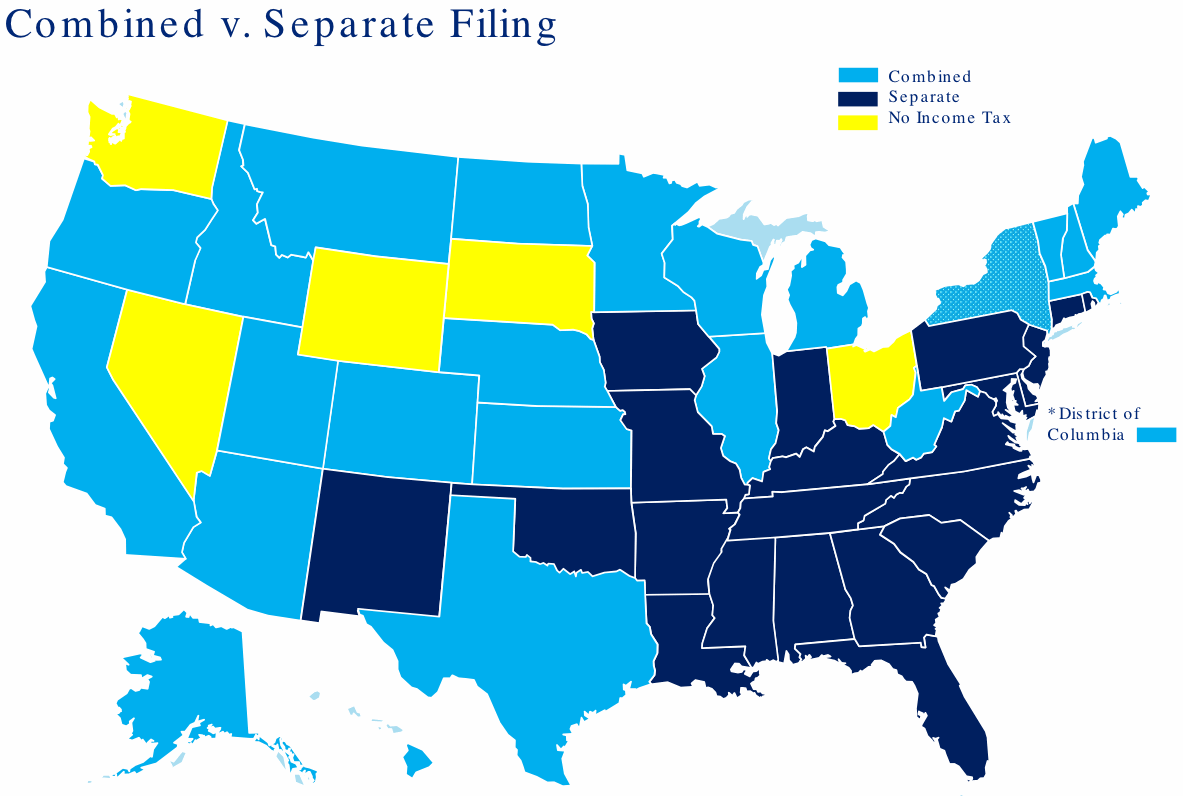Last month, the US Senate held a committee hearing on offshore tax evasion and published a report stating that foreign tax havens have cost the U.S. $150 billion a year in lost revenue. It didn’t include any information about the states’ tax losses, yet states have the ability to tax offshore revenue, and they want their share. Some states are taking legislative action to gain more revenue and keep corporations from using tax havens to avoid their corporate income taxes.
When legislators promote their anti-tax haven legislation, they often refer to "closing loop-holes." One example is in Minnesota. The Governor wants to ‘close loopholes’ and also lower the rate, yet his tax plan would include the offshore profits of corporations in the state’s corporate income tax. So, is he closing loopholes or broadening the base so the rate reduction doesn’t hurt his state’s revenue? With the third highest corporate income tax rate in the nation (9.8%), he probably fears lowering the rate unless it is a revenue neutral change, which explains his wanting to expand the base to offshore corporate profits.
The Situation
Most states in America collect taxes on corporate income. The tax is a rate on the amount of money a company makes in that state. According to the Tax Foundation, Nevada, South Dakota, and Wyoming do not have any corporate income tax. Ohio, Texas, and Washington also do not have corporate income tax, but do have gross receipts tax on corporations. Typically, if a company does business in multiple states, then it pays taxes on the amount of income it earns in each state respectively, according to that state’s tax law. The concern is coming from multinational companies that hide earnings in offshore tax havens to avoid paying taxes on that money. There has been some disagreement on the complete list of countries that serve as tax havens, but the most familiar are the Cayman Islands, Bermuda, and Luxembourg. Some also argue there are also tax havens within the United States such as Delaware, Nevada, and Wyoming that need to be addressed.
State Action
Some states have decided to try to collect revenue from multinational corporations that avoid state taxes by moving earnings to offshore tax havens. It has been estimated that states on average could collect more than $20 billion each year in additional corporate income taxes, if they were able to include this income in tax havens. The movement for states to collect this tax revenue began around 2000.
Montana was the first of the states to implement these tax changes and has served as a model for other states since their passage in 2004. After a decade, data is available on the change in revenue generation this tax change has had on the state. Corporate tax collections have increased between 5 percent and 7 percent since the law’s passage. In 2010, the state of Montana collected $7.2 million in extra revenue. Oregon, which passed its law in 2013, is expecting an additional $18 million in 2014.
Maine lawmakers introduced a bill in last year’s legislature that would add 38 known offshore tax havens to the formula for calculating corporate tax collections in the state. The Maine Legislature’s Joint Taxation Committee voted 8-to-5 in favor of the bill last month, and it is expected that the full legislature will follow suit when the bill is revisited in 2014.
Both Alaska and West Virginia’s tax codes require companies with subsidiaries in tax havens to include that revenue in their income tax reporting. However, specific tax havens are not listed in those tax codes. One of the most popular domestic tax shelters is the state of Delaware, which allows companies to shift royalties and similar revenues to holding companies in the state, where they are not taxed. According to a study, corporations have taken advantage of Delaware’s rules and have saved an estimated $9.5 billion in taxes they would otherwise have paid to other states. As of 2014, twenty-four states and D.C. have combined reporting, meaning corporations must report worldwide earnings to the state. See the map below:

What it Means for North Carolina
Being aware of what other states are doing will help North Carolina be more competitive for business investment. You notice from the above chart that southeastern states do not require corporations to file a combined report, and are thus unable to tax offshore earnings. Over the last ten years, we have seen states in the Southeast lowering their corporate income tax rates, and with that, more businesses are moving to these Southern states. The good thing is that, with more and more states in the West and Northeast including these offshore profits in their corporate income tax rates, more businesses will leave those states and come to states like North Carolina.
Corporations want to make money, not be taxed. They will relocate to areas that have a less complicated tax code and have lower tax rates. According to a JLF Spotlight by Dr. Roy Cordato,
The corporate income tax is based on the myth that corporations actually pay taxes. In fact, corporations not only do not pay taxes, they cannot pay taxes. All taxes "paid" by a corporation must come out of real people’s wallets or bank accounts. These real people are shareholders, employees, and customers.
So the answer is, NO. States should not collect state corporate income taxes from offshore accounts. But, if states do decide to do this, then North Carolina will reap the benefit with a lower tax rate and simpler tax code.
Click here for the Fiscal Update archive.
You can unsubscribe to this and all future e-mails from the John Locke Foundation by clicking the "Manage Subscriptions" button at the top of this newsletter.

